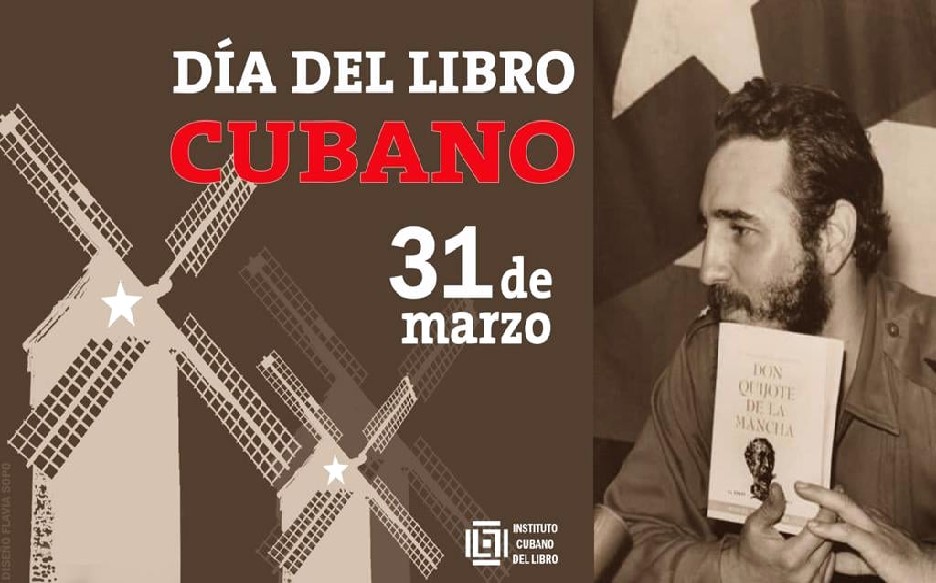Cuban Book Day and the promotion of culture

Since 1981, 31 March has been celebrated as Cuban Book Day. This event was created to commemorate the founding of the Cuban National Press, which was established in 1959 and quickly became a cornerstone of the country’s publishing industry. At the time, Cuba was undergoing significant social changes aimed at promoting change through education and culture as fundamental pillars. In this context, the National Press, despite its short existence, played a pivotal role in consolidating the nation’s editorial production and creating a broader framework that revalued books and reading as essential components in the advancement of education, culture and knowledge.
One of its most important tasks was to prepare and publish the essential study materials, pamphlets and manuals used during the Literacy Campaign, producing more than two million copies. Under the direction of Alejo Carpentier, the press also printed important works of world literature, such as In Cold Blood, Doña Bárbara and A Swan’s Love, as well as works by César Vallejo, Nicolás Guillén, Rubén Darío and Pablo Neruda. It also produced three volumes of Cuban poetry under the direction of José Lezama Lima. In addition, the press published its iconic edition of Don Quixote, which was its first publication. This initiative was a bold declaration of intent to demonstrate a commitment to a popular orientation in production and a thoughtful approach to cultural planning, as seen in initiatives such as the People’s Library Collection and the system of territorial editions.
«The book festivals were closely linked to the National Press, building on earlier efforts and paving the way for what would soon become a colossal book fair that spread from the capital to the whole country,» notes writer and researcher Luis Toledo Sande. In May 1962, the National Publishing House emerged from the development of the National Press and was responsible for the publication of many important works, including the complete works of José Martí, which are still in circulation today. This publishing house was the forerunner of the critical edition managed by the Martí Studies Centre, founded in 1977.
In 1967, the Cuban Book Institute was created, forming the backbone of the country’s network of national and provincial publishing houses. Over the years, despite challenges such as material scarcity and the complexities of the publishing world, new initiatives have emerged, including the distribution of electronic books, exhibitions and programmes to promote reading. On Cuban Book Day, we celebrate a system dedicated to the dissemination of culture and knowledge, where the book is not a privilege, but a vital source of wisdom. As the journalist and critic Pedro de la Hoz once said, «It is a matter of filling gaps, appealing to creativity, promoting alternatives, and moving from diagnosis to action within the network of institutions related to books – including public and school libraries, the media, schools and universities, and authors».
Translated by Luis E. Amador Dominguez
Photo: Cultura Matancera on Facebook



